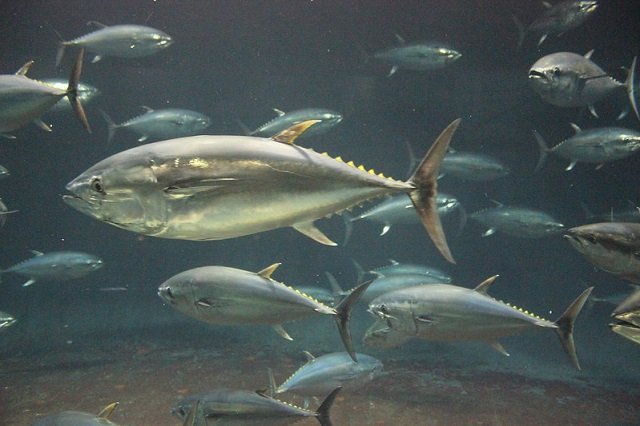By Khon Kaen University
The Department of Fishery, Faculty of Agriculture is carrying out the vannamei white shrimp farming project using a low-saline water circulation system. The project is the collaboration between the department and Thai Union Feed Mill, Public Company.
A sustainable white shrimp farming system requires circulation of water and draining sewage and wastes in the pond. The waste from shrimps can be used as fish feeds, while the water is being circulated and treated in a closed system in order to reduce discharge of water from the system. The density is 4-5 times higher than earth-pond farming. The length of time for one batch is 70 days, when the production is 60 shrimps per one kilogram.
Khun Kamphon Thaiso, the manager of the Fishery Unit of the Faculty of Agriculture, Khon Kaen University, revealed that the vannamei white shrimp is the sea shrimp that is of economic important value at present. The shrimp has been developed until it can be farmed in fresh water with low salinity, using a circulation system of water. During the farming batch, there is no discharge of water, so it is environmental friendly. The capacity of this farming is 300 shrimps per one square meter. The period of one batch is 70 days, to obtain 60 shrimps per 1 kilogram.
The research outcome can be used to promote farmers all over the country to raise shrimps in fresh water using the water circulation system. It is a sustainable occupation for farmers. Any farmer who wants more details of the farming system can contact the Faculty of Agriculture, Khon Kaen University at Tel. 043 202 360.
Assoc. Prof. Darunee Chotithayangkoon, Ph.D., Dean of the Faculty of Agriculure; Asst. Prof. Siripawee Charoenwatanasak, Ph,D., Vice Dean for Education; and Assoc. Prof. Bandit Yuangsoi, Ph.D., Head of the Department of Fishery, visited the farming of white shrimp in low-salinity water-circulating system, under the collaboration between the faculty of Agriculture and Thai Union Feed Mill, Public Company.
Editor at the digital magazine AquaHoy. He holds a degree in Aquaculture Biology from the National University of Santa (UNS) and a Master’s degree in Science and Innovation Management from the Polytechnic University of Valencia, with postgraduate diplomas in Business Innovation and Innovation Management. He possesses extensive experience in the aquaculture and fisheries sector, having led the Fisheries Innovation Unit of the National Program for Innovation in Fisheries and Aquaculture (PNIPA). He has served as a senior consultant in technology watch, an innovation project formulator and advisor, and a lecturer at UNS. He is a member of the Peruvian College of Biologists and was recognized by the World Aquaculture Society (WAS) in 2016 for his contribution to aquaculture.







